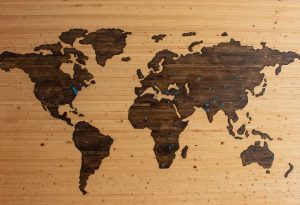Have you ever been asking yourself what localization strategies are used by the biggest internationally known corporations and brands?
Nowadays, the Internet gives us the ability to communicate and connect with anyone we want on the other side of the planet in a matter of seconds, and because of this, several big companies and brands become globally known, reaching millions of people.
In order to optimize sales and brand actions, localization is quite a crucial investment, and it now involves several brands all over the world. Here’s a list of 3 brands that have succeeded in making localization part of a winning strategy.
Coca-Cola
The brand Coca-Cola has become famous throughout the planet and there is no person in the world who does not recognize it or does not drink Coca-cola.
In the past, Coca-Cola has been one of the few international brands able to attract the attention of a global audience and keep it for years. The strategy used by this brand in marketing and localization has been mind-blowing: in fact, in 2013, the “Share a Coke” advertising campaign started by including somewhat common English names such as “Share a Coke with John” at the beginning.
What was surprising was the fact that this campaign adapted according to the target audience: so, for example, in Russia, where English names are not common, they localized the content by launching the campaign with names like Aoife.
However, although the Coca-Cola website is available in more than 20 languages, the name remains the same around the world.
Apple
Apple is one of the most loved brands on the planet, becoming one of the largest companies in the world, competing with the likes of Microsoft and Google.
The fact that the brand is localized for other countries makes it successful worldwide. In fact, the communication on the website is quite seamless: upon logging in, the first prompt you will receive is to choose the region from which you are accessing the site.
Moreover, Apple offers marketing services and products to more than 100 different countries around the world. As a practical example, the Apple company took time to find out what Japanese consumers like and decided to adapt its advertising needs to meet the cultural demands of its demographic target.
Netflix
Netflix is the brand known for its vast range of movies, documentaries, and TV series of all kinds, satisfying the tastes of any viewer in a significant way. It is well known, however, that no one likes to enjoy a movie in a language they do not understand: that’s why Netflix has seen fit to ensure not only subtitles for every need in multiple languages, but the content also varies depending on the location and language and cultural preferences of the consumer.
Unlike other entities, Netflix has heavily invested in the creation of content of all kinds, and that’s why in terms of respect for cultures, tradition, language adaptation, and film content, the Netflix brand can be defined as unbeatable.
Conclusion
The effects of globalization have for some time now conquered every possible field, from technology to the mix of cultures and traditions, to work and much more.
Today, in fact, any company that does not pay attention to the different cultures of its target audience risks losing consensus and failing in its intent to increase its business objective.
Capturing a broader audience means taking your brand to a level where it can compete with the largest companies on a global level, which is why localization strategies are so important.
If you want to know more about localization strategies check the useful link we list below.












